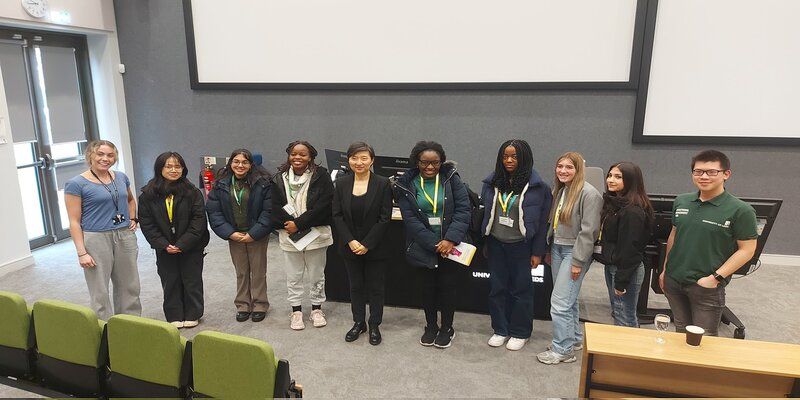
School pupils have been inspired by world-renowned scientists as they learned about the latest innovations in molecular biology at The Astbury Conversation.
The two-day event brings together people from across the globe to discover, explore and inspire ideas while showcasing progress. It includes the opportunity to meet in person with over 280 academics, researchers, students and businesses.
With a theme of ‘Illuminating Life’, this year’s Astbury Conversation shone a light on the hidden world of macromolecules.
Award-winning Professor Xiaowei Zhuang, from Harvard University, delivered a keynote speech about her work in developing pioneering imaging methods to reveal the molecular mechanisms of cellular function.
And 16-18-year-olds from the University’s flagship widening participation scheme Reach for Excellence took part in a public engagement event, which featured interactive displays and virtual reality experiences.
It’s wonderful to see brilliant young minds from our Reach for Excellence programme engaging in such an exciting and impactful event.”
First held in 2016, the Astbury Conversation was named after Professor William Astbury, who was appointed Professor of Biomolecular Structure at Leeds in 1945. He is also the namesake of the University’s Astbury Centre for Structural Molecular Biology, which brings physicists, chemists and biologists together to understand the workings of living cells.
William Astbury was a biophysicist who used some of the analytical methods in physics to investigate and visualise the structure of biological materials. He took some of the first X-ray diffraction images of DNA in 1938, and is regarded as one of the founding fathers of structural biology.
Professor Neil Ranson, Director of the Astbury Centre for Structural Molecular Biology, said: “The Astbury Conversation is a brilliant opportunity for academics and the public alike to understand more about this fascinating area of research, and to have a keynote speaker such as Professor Xiaowei Zhuang is a huge honour for us.
“Leeds has a rich history in developing new techniques to investigate the structure of biological molecules, which continues today, so it's been a huge delight to welcome so many people at these events to share knowledge, inspire - and build connections for the future.”
Supporting young people
For over 15 years, Reach for Excellence has supported young people with the potential to gain a place at a research-intensive university, but who may not have considered it, or who may perceive barriers to entry.
Professor Jeff Grabill, Deputy Vice-Chancellor: Student Education, said: “It’s wonderful to see brilliant young minds from our Reach for Excellence programme engaging in such an exciting and impactful event. The programme aims to support young people into Higher Education and grow their confidence in their abilities, skills and resilience, ready to hit the ground running at university and beyond.”
For more information, please contact Corporate Communications Officer Becky Pascoe
Further information
Professor Xiaowei Zhuang is Professor from the department of Chemistry and Chemical Biology at Harvard University. Inventions from Professor Zhuang’s lab, such as the super-resolution imaging method known as stochastic optical reconstruction microscopy (STORM) and the single-cell transcriptome imaging method known as multiplexed error-robust fluorescence in situ hybridization (MERFISH), allow imaging of cells and tissues with single-molecule sensitivity, nanometer-scale resolution, and genomic-scale throughput.